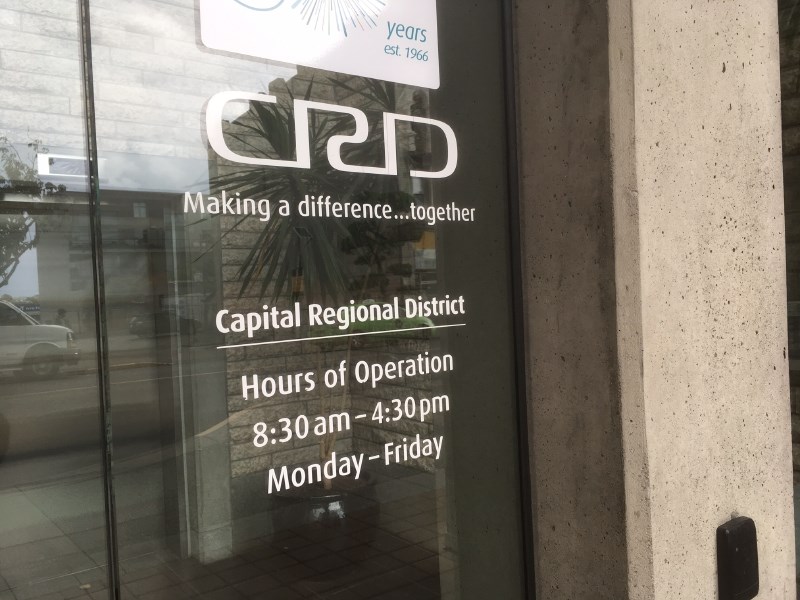Re: “Identity crisis at CRD problematic for taxpayers,” comment, Nov. 17.
Stan Bartlett, chairman of the Grumpy Taxpayer$ of Greater Victoria, is grumpy about the Capital Regional District because it has an “identity crisis,” apparently about whether it is a true regional government or a vehicle to enable participants to combine services they cannot provide themselves.
Bartlett does acknowledge that the CRD is a bit of both, but not without a drive-by slagging of the organization.
Attacks on the CRD are fashionable nowadays, but Bartlett is wrong in suggesting that the CRD board is not directly elected and therefore unaccountable. Directors from Victoria, Saanich and the three electoral areas are all directly elected. Even so, the CRD really just represents the collective views of its constituent local governments. If some CRD directors are not representing the views of their local councils or constituents, this can and should be taken up with these directors.
Bartlett trots out old saws about the problematic sewage-treatment project. As Geoff Young, one of the directly elected CRD directors from Victoria, has stated, the province dictated that the CRD undertake the sewage-treatment project, but without the authority to override the objection of one municipality.
After two years of letting the CRD twist in the wind, the former B.C. Liberal government, through an independent review process, came to the same conclusions as the CRD board regarding the project’s location and basic configuration.
Of course, the CRD is imperfect, as are all governments at any level, but the Grumpy Taxpayer$ fail to mention some of its notable successes. The management of the Hartland landfill is singled out for criticism by Bartlett, but for decades has resulted in residential recycling at no cost to taxpayers.
Also, the single most important contribution to reducing greenhouse-gas emissions in the region was the decision by the CRD to capture and generate power with the landfill’s methane emissions. Similarly, CRD parks, water commission and housing trust fund are all programs that are among the most successful in B.C.
It is not clear whether the Grumpy Taxpayer$ see amalgamation as the alternative to the CRD, but if so, be careful what you wish for. In order for the “unaccountable” CRD to create new services or increase tax rates for services beyond those specified in establishment bylaws, explicit taxpayer approval is required. This is a bad thing?
How would grumpy taxpayers feel about a centralized Greater Victoria municipal council simply imposing such tax increases? If you don’t like our current growth-management strategy (which admittedly could be stronger), how would you feel if a centralized Greater Victoria council were making every land-use decision for your community?
As respected academics such as University of Victoria professor emeritus Robert Bish and the recent provincial study of regional governance by former Liberal cabinet minister George Abbott have pointed out, the lower-hanging fruit in the pursuit of efficiencies in service delivery is integration of individual services. This is best done co-operatively, based on due diligence and with provincial support. Regional districts were created to enable exactly this kind of beneficial service integration at a region-wide or sub-regional level.
Just being a grumpy-pants about non-issues such as whether the CRD is a federation or not won’t solve the challenges we face in the region. In fact, by continually discrediting the governance entity that was created to enable collaboration around such challenges, we make the job harder.
Gary Holman is a former CRD director for Salt Spring Island and former MLA for Saanich North and the Islands.



